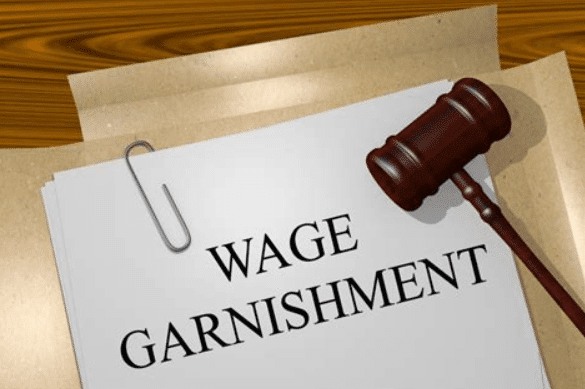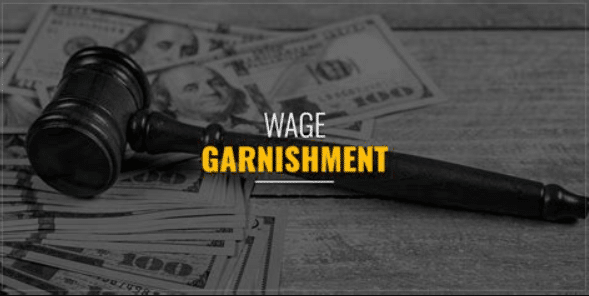To mitigate the risk of wage garnishment resulting from a debt lawsuit, several proactive measures can be undertaken. Firstly, promptly responding to the lawsuit is imperative, followed by exploring avenues for debt settlement. Additionally, consolidating debts and exploring garnishment exemptions can provide relief. However, if these options prove inadequate, bankruptcy may serve as a final recourse.
At ZumaZip.com, we specialize in assisting individuals facing debt lawsuits, offering comprehensive support to respond to legal actions and facilitate debt settlement negotiations prior to court proceedings. Our aim is to safeguard your financial stability and alleviate the stress associated with wage garnishment, ensuring a more secure and tranquil livelihood.
Avoid wage garnishment through debt settlement.
How does wage garnishment work?
Wage garnishment stands as a legal mechanism enabling creditors to recuperate debts by directly deducting a portion of one’s wages. This process can present significant challenges, as it directly impacts take-home pay and overall financial stability. Common triggers for wage garnishment encompass outstanding taxes, child support obligations, student loans, and unresolved credit card debt.
Moreover, wage garnishment can stem from various sources, including unpaid medical bills or other consumer debts. Typically, creditors initiate garnishment proceedings through legal action, often by filing a lawsuit. Failure to respond to such legal actions can lead to a default judgment being issued by the court in favor of the creditor, authorizing them to garnish wages. Nevertheless, individuals retain the right to respond to these lawsuits, and timely action is imperative to safeguard their interests.
Follow these 5 steps to prevent wage garnishment
When facing a debt lawsuit, it’s crucial to understand that you still have viable options to navigate the situation. Below, we’ll outline five strategic steps you can take to circumvent the potential for wage garnishment.
Step 1: Respond to your debt lawsuit before the deadline
Wage garnishments commonly arise from debt lawsuits culminating in default judgments, often prompted by the defendant’s failure to respond to the case within their state’s specified deadline.
Engaging legal representation can be financially prohibitive for many individuals confronting debt lawsuits. Fortunately, ZumaZip.com offers a solution by simplifying the process of self-representation in court, thereby enhancing the prospects of a favorable outcome.
Upon being sued for debt, individuals typically receive court documents, commonly referred to as the Summons and Complaint, which detail the lawsuit’s nature and the allegations against them. Responding to these documents with a written Answer is incumbent upon the defendant. Leveraging ZumaZip.com’s software empowers individuals to swiftly draft and file their Answers, streamlining the process and ensuring timely compliance with legal requirements.
In your Answer, you will include the following:
Responses to each claim
In your court document, it’s essential to provide a distinct response to each claim outlined against you. You have the option to admit or deny each claim or assert lack of knowledge regarding its validity. Legal counsel commonly advises denying as many claims as feasible to bolster your defense. Denying a claim places the onus on the opposing party to substantiate its veracity, thereby potentially complicating their case if adequate evidence is lacking. This strategic approach strengthens your position and underscores the necessity for the opposing party to meet the burden of proof.
Affirmative defenses
An affirmative defense constitutes any valid reason why you should not be deemed liable for the debt in question. For instance, if the debt has surpassed the statute of limitations, or if partial or full payment has already been made, these constitute strong defenses to assert in your Answer.
ZumaZip‘s software is designed to facilitate the comprehensive response to each claim levied against you, enabling you to assert affirmative defenses effectively. With our platform, you can ensure that your case is diligently prepared and filed with the court, maximizing your chances of a favorable outcome.
Step 2: Settle your debt before going to court
Managing debt can indeed be daunting, but proactively settling the debt prior to your court date can spare you the complexities of a trial and the potential ramifications of wage garnishment.
Debt settlement entails engaging in negotiations with a creditor to discharge a debt for an amount less than the total owed, a recourse typically pursued by individuals grappling with debt burdens beyond their capacity to fully repay.
For instance, in the scenario of outstanding credit card debt where full repayment is unfeasible, one might explore the option of negotiating a lump-sum payment, typically around 60% of the original balance, to settle the debt.
Introducing ZumaZip Settle, powered by ZumaZip, a technology-driven solution to debt settlement. Our software streamlines the negotiation process, facilitating the exchange of settlement offers until a mutually agreeable resolution with the collector is reached. Once an accord is established, we provide comprehensive assistance in managing settlement documentation and securely transferring payments to the creditor or debt collector, safeguarding your financial information with utmost confidentiality.
Step 3: Consolidate your debts
Debt consolidation is the process of merging multiple debts into a single, more manageable loan. By consolidating debts, individuals can potentially lower their monthly payments and simplify the overall debt repayment process. Here are some debt consolidation method you might consider:
- Personal Loan: You can apply for a personal loan from a bank, credit union, or online lender. If approved, you’ll receive a lump sum of money that you can use to pay off your existing debts. Then, you’ll make monthly payments on the new loan.
- Balance Transfer: This involves transferring high-interest credit card balances to a new credit card with a lower or 0% introductory interest rate. There’s usually a balance transfer fee, and the introductory rate is temporary.
- Home Equity Loan or HELOC: If you’re a homeowner, you can use the equity in your home to secure a loan at a potentially lower interest rate. This is riskier, as your home is used as collateral.
- Debt Management Plan (DMP): Through a credit counseling agency, you work out a plan to pay off your debts over an extended period. The agency negotiates with creditors for potentially lower interest rates and fees.
- Debt Consolidation Loan: Some lenders offer specialized loans specifically for debt consolidation.
It’s important to carefully consider the pros and cons of debt consolidation and choose a method that aligns with your financial situation and goals. With debt consolidation, you’ll only have one payment to manage, and it will typically come with a lower interest rate, saving you money on interest payments.However, Some consolidation methods might extend your repayment period, potentially resulting in higher overall interest costs. Plus, consolidation can impact your credit score in the short term, although it might improve as you make consistent payments.
Step 4: Check for garnishment exemptions
In specific circumstances, particular sources of income may be exempt from wage garnishment. Social Security benefits, disability payments, and retirement funds typically fall under this protection, shielding them from creditor actions.
Each state maintains distinct wage garnishment laws, criteria, and exemptions. However, certain types of income are commonly safeguarded from garnishment across jurisdictions, including:
- Disability benefits
- Social Security
- Child support
- Alimony
It’s essential to acquaint yourself with the regulations pertinent to your jurisdiction to ascertain which income sources enjoy exemption from garnishment.
Here’s a list of wage garnishment laws for each state.
Step 5: Consider bankruptcy as a last resort
Although it’s typically recommended to exhaust alternative avenues beforehand, bankruptcy can serve as a final recourse to prevent wage garnishment. Upon filing for bankruptcy, an automatic stay is initiated, effectively halting all collection activities, including wage garnishment. However, it’s crucial to approach bankruptcy with careful consideration due to its enduring repercussions on your creditworthiness.
The bottom line
Contending with the looming threat of wage garnishment can undoubtedly induce stress, yet you need not confront it in isolation. Leveraging resources such as ZumaZip and ZumaZip Settle equips you with the tools to adeptly address debt lawsuits and negotiate settlements conducive to your financial well-being.
Initiating proactive measures to tackle your debt signifies a reclaiming of financial autonomy and sets the trajectory toward a more promising fiscal outlook. Keep in mind that each individual’s circumstances are distinct, underscoring the importance of seeking guidance from legal experts or financial advisors to make well-informed decisions tailored to your specific situation.
What is ZumaZip?
ZumaZip is a convenient solution designed to streamline your response to a debt collection lawsuit. Here’s a breakdown of what you can expect when you use ZumaZip:
Firstly, you’ll access our user-friendly web application, which guides you through the process step by step. You’ll be prompted to answer a series of questions related to your specific situation. Once you’ve completed the questionnaire, you have the option to either print out the finalized forms and mail them to the appropriate courts yourself, or you can opt to utilize ZumaZip’s services to file them on your behalf. Additionally, if you choose this option, an attorney will review your document for added peace of mind.
If you’re seeking guidance on how to effectively respond to a debt collection lawsuit, ZumaZip can provide the assistance you need. Feel free to explore our FAQs for more information on what ZumaZip has to offer.
What if I haven’t been sued yet?
If you’ve only received a collections notice, but not a lawsuit, the best way to respond is with a Debt Validation Letter. When a debt collector contacts you in any way, whether it’s by phone or mail, you can respond by formally requesting a debt validation with a Debt Validation Letter . This letter notifies the collector that you dispute the debt and forces them to provide proof you owe the debt. They can’t call you or continue collecting until they provide validation of the debt. This flowchart shows how you can use a Debt Validation Letter to win.
Get started with a Debt Validation Letter here.
How to Answer a Summons for debt collection in all 50 states
Here’s a list of guides on how to respond to a debt collection lawsuit in each state:
- Alabama
- Alaska
- Arizona
- Arkansas
- California
- Colorado
- Connecticut
- Delaware
- Florida
- Georgia
- Hawaii
- Idaho
- Illinois
- Indiana
- Iowa
- Kansas
- Kentucky
- Louisiana
- Maine
- Maryland
- Massachusetts
- Michigan
- Minnesota
- Mississippi
- Missouri
- Montana
- Nebraska
- Nevada
- New Hampshire
- New Jersey
- New Mexico
- New York
- North Carolina
- North Dakota
- Ohio
- Oklahoma
- Oregon
- Pennsylvania
- Rhode Island
- South Carolina
- South Dakota
- Tennessee
- Texas
- Utah
- Vermont; Vermont (Small Claims court)
- Virginia
- Washington
- West Virginia
- Wisconsin
- Wyoming
Guides on how to beat every debt collector
Hey there! Facing off against a debt collector can feel like a daunting challenge, but fear not! We’re here to help you navigate through it all with our handy guides designed to assist you in beating every debt collector you encounter. Whether you’re facing a new lawsuit or dealing with a persistent collector, we’ve got your back. Stay positive, stay informed, and let’s tackle this together!
- Absolute Resolutions Investments LLC
- Accredited Collection Services
- Alliance One
- Amcol Clmbia
- American Recovery Service
- Asset Acceptance LLC
- Asset Recovery Solutions
- Associated Credit Services
- Autovest LLC
- Cach LLC
- Cavalry SPV I LLC
- Cerastes LLC
- Colinfobur
- Covington Credit
- Crown Asset Management
- CTC Debt Collector
- Cypress Financial Recoveries
- Delanor Kemper & Associates
- Eagle Loan of Ohio
- Educap
- Estate Information Services
- FIA Card Services
- Forster & Garbus
- Freshview Solutions
- Fulton Friedman & Gullace LLP
- Harvest Credit Management
- Howard Lee Schiff
- Hudson & Keyse LLC
- Integras Capital Recovery LLC
- Javitch Block
- Jefferson Capital Systems LLC
- LVNV Funding
- Mannbracken
- Mariner Finance
- Medicredit
- Michael J Adams PC
- Michael J Scott
- Midland Funding LLC
- Mullooly, Jeffrey, Rooney & Flynn
- Mountain Land Collections
- MRS Associates
- National Collegiate Trust
- Nationstar Foreclosure
- Northstar Capital Acquisition
- NCEP LLC
- NRC Collection Agency
- OneMain Financial
- Palisades Collection LLC
- Pallida LLC
- Paragon Revenue Group
- Pinnacle Collections Agency
- PMAB LLC
- Portfolio Recovery Associates
- Provest Law
- PYOD LLC
- Reunion Student Loan Finance Corporation
- Revenue Group
- Regents and Associates
- RSIEH
- Salander Enterprises LLC
- Second Round Sub LLC
- Security Credit Services
- Sherman Financial Group
- Suttell and Hammer
- T-Mobile
- Transworld Systems
- Tulsa Teachers Credit Union
- UCB Collection
- Velo Law Office
- Velocity Investments
- Waypoint Resource Group
- Weinberg and Associates
- Wolpoff & Abramson
Settle your medical debt
Having a health challenge is stressful, but dealing medical debt on top of it is overwhelming. Here are some resources on how to manage medical debt.
- Am I Responsible for My Spouse’s Medical Debt?
- Do I Need a Lawyer for Medical Bills?
- Do I Need a Lawyer to Fight Medical Bill Debt?
- Does Bankruptcy Clear Medical Debt?
- How Much Do Collection Agencies Pay for Medical Debt?
- How to Find Medical Debt Forgiveness Programs
- Is There a Statute of Limitations on Medical Bills?
- Medical Debt Statute of Limitations by State
- Summoned to Court for Medical Bills — What Do I Do?
- Summoned to Court for Medical Bills? What to Do Next
Stop calls from Debt Collectors
Do you keep getting calls from an unknown number, only to realize that it’s a debt collector on the other line? If you’ve been called by any of the following numbers, chances are you have collectors coming after you, and we’ll tell you how to stop them.
- 800-390-7584
- 800-289-8004
- 800-955-6600
- 877-366-0169
- 877-591-0747
- 800-278-2420
- 800-604-0064
- 800-846-6406
- 877-317-0948
- 888-899-4332
- 888-912-7925
- 202-367-9070
- 502-267-7522
Other wage garnishment resources
- Bank Account Garnishment and Liens in Texas
- Can I Stop Wage Garnishment?
- Can My Wife’s Bank Account Be Garnished for My Debt?
- Can Payday Loans Garnish Your Wages?
- Can pensions be garnished?
- Can Private Disability Payments Be Garnished?
- Can Social Security Disability Be Garnished?
- Can They Garnish Your Wages for Credit Card Debt?
- Can You Stop a Garnishment Once It Starts?
- Guide to Garnishment Limits by State
- How Can I Stop Wage Garnishments Immediately?
- How Long Before a Creditor Can Garnish Wages?
- How Long Does It Take to Get Garnished Wages Back?
- How to Fight a Wage Garnishment
- How to Prevent Wage Garnishment
- How to Stop a Garnishment
- How to Stop Social Security Wage Garnishment
- How to Stop Wage Garnishment — Everything You Need to Know
- New York Garnishment Laws – Overview
- Ohio Garnishment Laws — What They Say
- Wage Garnishment Lawyer
- What Is Wage Garnishment?



































